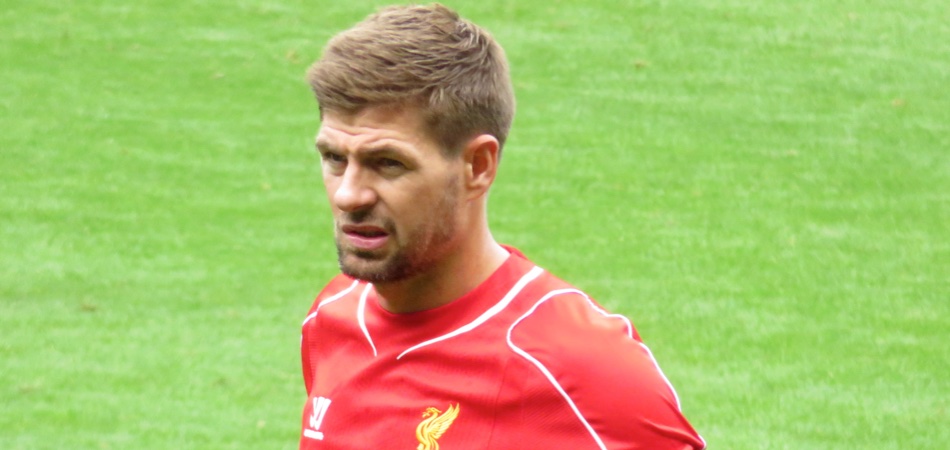This may just be my mood, but I think today, June 30, 2020, is the apex (or nadir) of the sports void. Usually when I wake up I have a decent idea of what I want to write about, and if I don’t, there’s something obvious or at least intriguing on ESPN or Yahoo or whatever. Right now? Nothing. Nothing but COVID stories (by the way, there’s a new pig pandemic brewing), or college athletes being abused, or whatever bland social justice stuff the big sites can get away with printing. Even good writers, you can tell, are drawing dead, and you see stuff like this featured:

I understand the need to write it, and I’ve been there myself, but it’s the kind of thing that just screams, “there is nothing to say right now.” Is there reason to worry about Lamar Jackson? No, probably not. Or maybe. We have no idea at this moment, and this kind of speculation—I can tell you this despite knowing far less than the writer, who, as I said, is a good one—is just kind of meaningless on June 30. Of course, it’s the NFL, which knows no offseason, but I don’t even know if the people who would normally enjoy debating something like this can get up for it right now.
Maybe I’m wrong and projecting my mood onto others, but the fact that the U.S. is peaking in COVID cases right now is just bumming me out. We’re stuck in the worst kind of holding pattern and we don’t have the wisdom or even the will to get out of it, which means that sports is essentially at the mercy of bad political decisions. Talking about the upcoming NBA resumption, or the NFL season, or anything beyond the tail end of the European soccer leagues almost feels presumptuous. Why debate whether the Bucks can win the title when it’s just as likely, if not far more so, that the whole thing is going to collapse in the next month?
Okay, so, turning off the negative nancy act…when I drove down to South Carolina, I downloaded a Civil War podcast for no really good (or even discernible) reason. I used to be a weird Civil War addict as a kid, but that went away, and I really can’t tell you what inspired it. I found one with decent reviews and 400+ episodes, and it’s just a husband and wife reading a pre-written script back and forth. Nothing fancy, but somehow, it’s awesome. I’ve been going through the Vicksburg campaign, and simultaneously reading Grant’s memoirs, which I bought a long time ago but haven’t started yet, and it’s been a blast.
All of which I mention because I think one of the best recourses, with the leisure time at our disposal in these strange days, is to retreat into history. The Civil War is just an option that appealed to me, but it could be anything. There’s a strange kind of comfort in history, in that the dramas you read about have already been decided, you can view the principal actors from a critical distance, and even learn things about human nature that you will probably never be able to apply to your life.
For instance: When Grant began his final campaign against Lee, he started like many union generals had before him, by engaging in fierce and bloody battles in northern Virginia. The confederate goal was to harass his army, and in the past the force of the conflict itself had turned the union back—their generals weren’t prepared to see it out. Grant was different. His instinct, always, was to press on, to realize that when you felt weak and dispirited the enemy probably did too, and to use his material advantage. After the Battle of the Wilderness in 1864, Grant’s in which 5,000 men from each side died and Grant had to disengage from the rebels since it was a stalemate at best, it seemed like the rhythms of the past had repeated, and the union army would retreat. Instead, he simply pushed on and tried to put his army between Lee and Richmond. That led to the Battle of Spotsylvania, which was even bloodier—32,000 casualties on both sides—and was also “inconclusive.” But in truth, there was nothing inconclusive about it. It was a war of attrition now, and Lee didn’t have the same resources. The only thing he could do was try to hold out long enough to break Grant’s will, but unlike anyone who came before him, Grant simply couldn’t be broken. He sustained heavy losses in the next year, and made some decisions he’d regret up to his death, but he always pressed forward, and the end result was Lee being forced to retreat, and retreat, and retreat, until finally the jig was up.
What can be learned from that? Maybe something about persistence through adversity and failure, or maybe a less savory lesson about how some fights can only be won the slow, ugly way, or maybe just redefining what constitutes a true “victory” or “loss,” and looking beyond the small-scale moments.
Whatever the case, there’s at least the illusion of certainty in history, and certainty is in mighty short supply. Which is why today we’re bound for…
MEMORY LANE
In honor of Liverpool (the team I adopted this year in what is the greatest and most shameless act of bandwagoning in my entire life) clinching the Premier League, let’s go back to 2005, to a Champions League final I only dimly remember. That match featured a much less dominant Liverpool club facing A.C. Milan, and as per their status as favorites, Milan went up 3-0 in the first half. Later, there were reports that they were celebrating and even singing in the locker room at halftime, but Liverpool’s Jamie Carragher dismissed this as a “pack of lies,” and said they were far too professional to assume victory. And as Carragher said, if they secretly thought they were close to victory, “who could blame them?”
The second half is the stuff of legends, and in the video below, you only need to watch the first 6:30 or so…but you may want to watch it all, because it’s fun, wide open soccer:
What’s amazing is that from the first half highlights alone, you get the sense that it could easily have been 5-0 to Milan, and they had some decent chances to score early in the second half too. But then everything changed on a Steven Gerrard header, momentum shifted, and Liverpool were champions of Europe.
And that’s what I mean about history. There’s something definitive and triumphant when you look back at that match, but it also retains some mystery. We can safely know that the stories of A.C. Milan prematurely celebrating were nonsense, but did they become complacent inside? Or was the opposite true? Did the lead make them tighten up, or did they think about missed opportunities to put the match well and truly out of reach?
My mind goes back to the Presidents Cup this past December in Australia, when the International Team jumped all over the Americans and ran them ragged on the first three days of pairs play. They had several chances to deal the killing blow, but they couldn’t quite manage it, and on Sunday the Americans staged a big but somewhat expected comeback in singles…they just had too much firepower, and the Internationals could only regret not putting them away when they had the chance.
Liverpool weren’t favorites like the Americans, but when Gerrard’s header went in, and the second goal came two minutes later, you wonder if Milan thought about that same idea, letting them off the mat, in a way that led them to become defensive and ended up being detrimental to their cause. Anyone who has ever played a sport knows there’s no feeling quite like giving up a big lead—it’s pure panic, and most of our natural and instinctual responses, such as becoming more conservative and taking fewer chances, actually play right into the opponent’s hands.
Maybe that happened to Milan, or maybe it was just bad luck. One of the great things about history is that even though we all know the same result, we can take different lessons from it. Were Milan complacent? Was Grant a butcher of men? It all depends on your perspective, which is why it’s not as easy to “learn” from history as it may seem.
But it’s certainly easy to immerse yourself, especially when the present is, on a large scale, so difficult. When checking the news each morning is like stepping into a fire, history is an appealing retreat.


